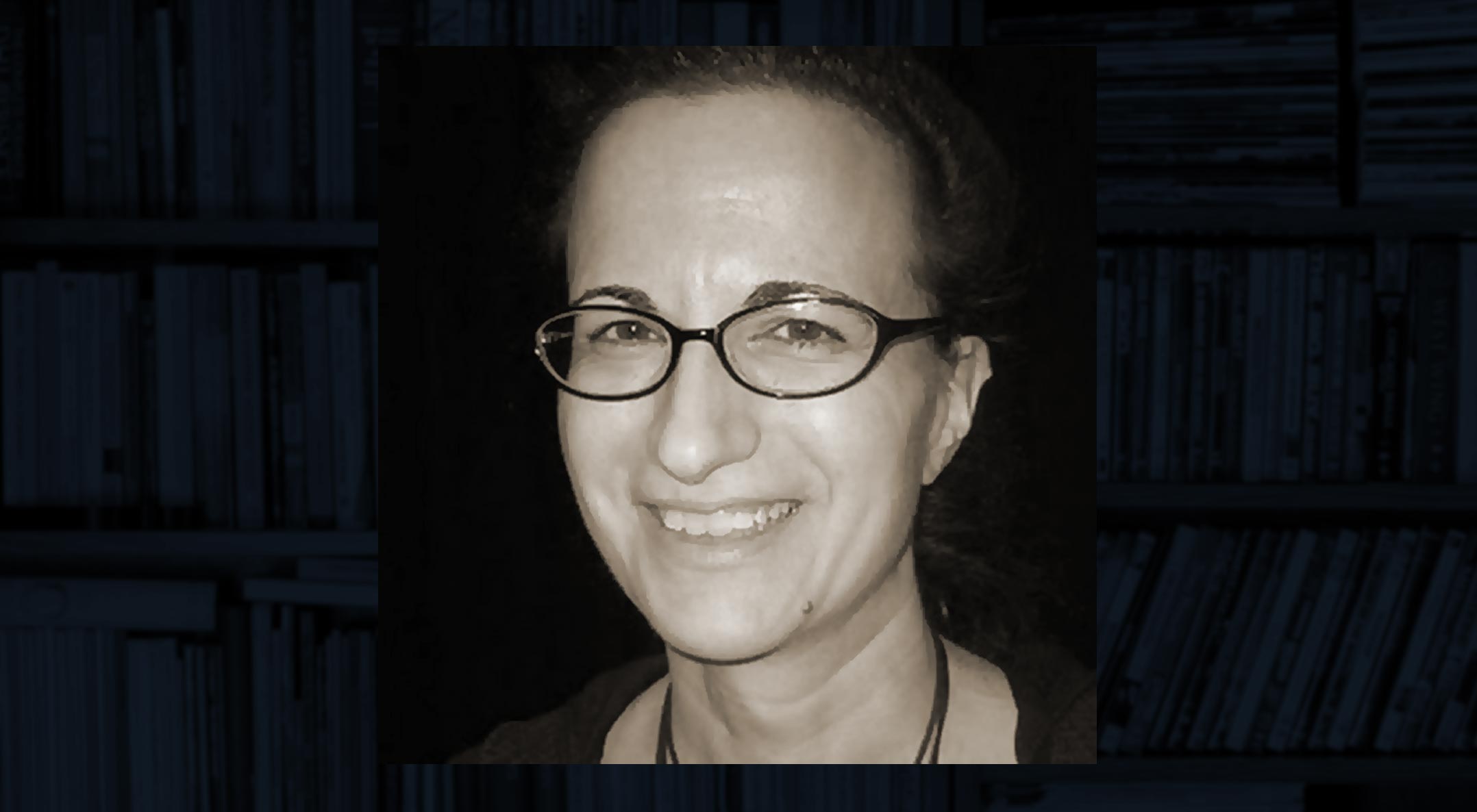 Lou Anders – Editorial Director at Pyr, the science fiction and fantasy imprint of Prometheus Books Publishing – returns to the Big Chair at the Roundtable to help workshop a story idea by podcaster, writer, and former Guest Co-Host Doc Coleman. Doc’s idea inspires a wealth of Literary Gold as Lou walks us through some exceptional insights into the storytelling craft (he even assigns homework!). (and if you’re STILL hungry for more writerly goodness, then check out Lou’s Showcase Episode!)
Lou Anders – Editorial Director at Pyr, the science fiction and fantasy imprint of Prometheus Books Publishing – returns to the Big Chair at the Roundtable to help workshop a story idea by podcaster, writer, and former Guest Co-Host Doc Coleman. Doc’s idea inspires a wealth of Literary Gold as Lou walks us through some exceptional insights into the storytelling craft (he even assigns homework!). (and if you’re STILL hungry for more writerly goodness, then check out Lou’s Showcase Episode!)
PROMO: “The Story Board” with Patrick Rothfuss
Workshop Episode 36 (Guest Host: Lou Anders)
[caution: mature language – listener discretion is advised]
Podcast: Download (Duration: 1:09:57 — 48.0MB)
Subscribe: RSS
Check out this and all our episodes on iTunes and on Stitcher Radio!
Upcoming Awesomeness for Lou…




- Some hot books coming out from Pyr:
- “The Creative Fire” by Brenda Cooper
- “Be My Enemy (Book Two of the Everness Series)” by Ian McDonald
- “London Eye (Toxic City Book One)” by Tim Lebbon
- Follow all the Pyr goodness at pyrsf.com
- Follow Pyr on Twitter @Pyr_Books
- Follow Lou on Twitter @LouAnders
Upcoming Conventions for Lou…
- Convergence (July 5 – 8, 2013, Bloomington, MN)
More from Doc Coleman…
- Check out Doc’s website (where you’ll find links to all the awesomeness that IS Doc)!
- Doc is a frequent stowaway on the Galley Table Podcast
- Follow him on Twitter @Scaleslea



Excellent workshop! I’m going to have to spend some time exploring your site and playing more of your programs because I learn something every time I do. Thank you!
Another great one. The info is about the book “My story can beat up your story was a orpan, wonder, warrior, & matyr” fantastic advice. Lou is wonderful.
DK
I really enjoyed this episode and thought it was interesting that Lou really focused on the presentation of key elements. I thought it was a refreshing and different approach to the workshop format.
These shows are fairly long as podcasts I listen to go, but this one really left me wanting more!
I thought that I would post my riff on Doc Coleman’s pitch, however my suggestion is a minor tweak compared to some of the other stuff that came up.
At one point Doc said the protagonist was a skeptic, but then later he said she was a pessimist (or that she was being pessimistic). There is a difference between these two things, especially when you have magic based on belief. What does a skeptic believe? Nothing. Therefor what what would her magic change? Nothing.
Pessimists on the other hand have very strong beliefs. They believe that whatever can go wrong will go wrong. Because she has magic that can change reality, then things tend to go wrong when she is around.
To put it simply she is a Jinx.
This is her “difficulty/problem” and it is (I think) a sympathetic one.
She has been a jinx as long as she can remember. Kids in school would tease her about it. Nobody wanted her on “their team” in gym. She would finish and turn all her homework early, because if she tried to turn it in the day it was due something would go wrong. Through intelligence and hard work she managed to get into college (her backup-backup choice college, wait listed) in spite of her “bad luck”.
Something goes wrong in chem lab. Her professor asks to speak with her later. When she goes to his office he asks her why she is sabotaging her chem lab work. She says that she isn’t doing it on purpose, “It’s her jinx”. He responds with, “I know it’s a jinx, but why are you using magic to jinx yourself?”
Teacher then spends most of the rest of the book trying to convince her that if she believes positive things then positive things happen, and if she believes impossible things then impossible things “can” happen. He will also go into the risks and limitations, but most of his effort will go to getting her to stop jinxing herself.
Meanwhile romantic subplot. A cute guy from one of her academic classes (where the jinx doesn’t tend to happen) invites her to come hear him play guitar at a coffee shop near campus. When she goes, he never shows up. She is worried that her jinx did something to make him not show, so goes looking for him. She finds him drained of vitality and unable to play guitar. (Doc mentioned that some affect reality through art, while others do it through magic, so our antagonist would “drain” artistic types).
The guitarist dies, and she assumes her jinx is responsible. She goes to the professor to tell him her jinx killed someone. The professor explains that a jinx is not going to drain someones vitality accidentally without her realizing it. It means that there must be another “wizard” at the school.
They look for the dark wizard
The dark wizard learns that they are looking him/her.
The dark wizard kidnaps her little brother
(side note: the little brother actually is a fan of real comic books, because he want’s to draw comic books when he grows up, that “artistic talent” means that he is just the type that the dark wizard would drain.)
The professor tells her that with all the vitality the dark wizard has been stealing he may not be able to beat the dark wizard alone. It is very important that she believe in herself so that they can beat the dark wizard wizard and rescue her brother.
They face the dark wizard, and they are losing when Protagonist has an epiphany. Believing that she can beat the dark wizard is hard for her, but believing she can jinx the dark wizard is easy. The dark wizard slips on a puddle (or something) drops his/her wand, and the professor gets the upper hand.
Peter,
Thanks for this take on my basic idea. I’m going to have to think about this for a bit. I’m just now seeing it, because I’ve been working on a YA version of this story for NaNoWriMo this year and haven’t take then time to check the comments here until now.
Casey’s adventure now takes place in high school, but that doesn’t mean I may not have another character come to power later in life. I still like the idea that if you have the potential for power, it can come to you at any time in your life. Unjinxing the jinx is an interesting idea.
Doc
I also want to say that Lou Anders definitely brought awesome to the table.
Doc;
You said Casey is failing at school. I think that is a less than intriguing quality in a protagonist. Lou said the protagonist needs to be good at something and have a problem.
I think her skepticism should be in part of her being very good at science. She could be very good in the classroom setting, full of book knowledge, but her problem is her lab work could be going wonky because of her unintentional use of magic.
I think skepticism is a fine defining quality for the protagonist as long as she comes by it honestly.
Insanity by itself is a bit vague. Obsessive compulsive disorder is a lot different than paranoid schizophrenia.
I like the idea that the enemy is actually on campus, perhaps a professor, or staff person who uses the campus population as his feeding ground.
Great show and great idea for a story.
Dan,
Thanks for your comments! Did I say she was failing at school? I thought I said she was failing at chemistry. You’ve actually sussed out my meaning, though. She’s struggling with the work load of college, but is generally doing well enough with the book learning. Chem lab, however, has been nothing but a disaster for her, and she doesn’t know how to pull it out.
Insanity is a bit vague as a consequence for over-use of magic powers, but there isn’t just one consequence. The magical backlash effects each person differently, and in degree to how much that individual pushes their power. Some people attempt higher magics they cannot handle and shatter their minds. Others “know their limits” and grow old with their power and are just seen as harmless eccentrics. In the magical community, this is a concern and a way of life.
It is like having a car powered by the amount of alcohol on your breath. You have to drink in order to drive, but if you drink too much, you’ll crash. And while some people try, you can’t not drive. The major magical users are very concerned about this.
I love this concept of magic, but I probably need to work on expressing it.
Casey’s story is now a YA story, but I may come back to the college version of this someday. I like this fantasy world.
Doc
I’m really really late to the table(have listened to like 20 of these already in the last week and a half – great show!).
I know this is too late to be of any value but I figured I’d throw it out there anyway.
I thought the suggestion of having a mom who had gone crazy from using magic was a really strong one. One of the things I wanted to know was why the main-character was such a skeptic, but this back story helps to suggest a reason.
I was wondering how the magic worked. I assume that when a person can alter reality, that person is not just altering it for himself, otherwise somebody who wields that magic is pretty much crazy from the start.
But if reality is literally altered for all to witness, then there are obvious complications to having a crazy magician in an asylum(unless its magic dampened in some way), but there is also a nice opportunity for the main character to have been living in an altered reality often as a young child – one of her mother’s making, a memory that scares her quite a bit, knowing that her mother is bonkers, and worrying that she might have that genetic disposition herself.
Focusing on science and mathematics for verifying her empirical observations could be a way of disciplining herself with the trappings of the physical world, always afraid that madness is the destination the next time she boards a flight of fancy.
I think that her magic could very well be the problem she is having in the labs(as the original idea spelled out), and if things that are entirely impossible for her to account for scientifically are happening, she could be starting out in a state of crisis.
But just because she really needs some reassurance about now doesn’t mean that she’s willing to let her guard down and immediately accept that magic is a real and true thing. She’s pretty sure she knows where that leads to.
Cool story! Thanks for sharing it!
You know what’s cool about comments from older shows? We get to go back and review the episode and relive the awesome! 😀
Your comments are appreciated Joshua. I think I may have been a little cool on the idea of insanity as the price of magic, but after considering your thoughts and reviewing the possibilities, it could actually serve as an intriguing exploration.
I’ve always said “Perception is reality” and when our personal perspectives become disjointed from the collective agreement of how things are, we’re quick to label it as madness. But what if those perceptions are valid and there are parallel realities. If mages can walk between them, that would be a powerful gift, but also a profound test of one’s stability.
Good stuff, man! 🙂
Hey Dave! Thanks for the reply. That’s a fair assessment about madness, but I think that the demarcation I would make as to whether or not somebody is crazy versus whether that person just has an entirely different perspective, is whether or not that perspective, when tested against its own assumptions, succeeds or fails.
The movie “Special” could be a good argument for either side of that I guess, but ultimately, while he thinks he’s walking through walls, he’s actually smashing his head into them.
Maybe metaphorically, on some spiritual level he’s walking through them, but he’s still mashing up his brain every time he whacks into one.
Regarding the story, if only you experience the world you alter, then I’m not sure how your magic could be of any consequence to anybody else, unless you conveyed your experiences through some other shared medium that people could participate in.
But I guess if there is an alternative reality that the person experiences, as you suggest, and other mages can walk through that dimension, then I can see a place for an exclusive “reality.”
I don’t know if I would call magic shifting to the reality where the effect you were thinking of happened. More like quantum tunneling. And I know just enough physics to know I don’t want to try to wrap my head around that one!
Doc
Joshua,
Thanks for your comments! You’re not too late to the table; I’m still working on this story. It has changed a bit. It is now a YA story about how Casey suddenly finds herself cast into the fae world, and what she has to do to fight her way back home. I wish the podcast was still in production so I could come back and re-workshop this story.
Now, about how the magic works. Here is the issue: if you have the magic gift your thoughts will change the world around you. If you think it should be warm, it becomes warmer. If you think it should be cold, it gets colder. If you think you should have wings, your body grows wings. Sounds neat, huh?
Well, it would be if you could think about only one thing at a time. Problem is that no one has that kind of concentration. A stray thought will send energy elsewhere, causing other consequences. Changing the nature of the mage. This is where the fae came from. They are people whose magic changed their bodies and minds. Or their children.
The other problem is, when you are using magic, how do you know if your are changing the world, or just creating an illusion of the change? Or perhaps you’re just hallucinating. That kind of doubt eats away at a mage. It shakes their concentration. Ruins their focus.
One common affliction for mages is that they end up internalizing their power and hallucinating instead of altering the world. Eventually, they become catatonic and withdraw from the world, living entirely in their minds. The fae call this “the Dreaming”. Most who fall prey to it never recover, but some fight their way back to the real world.
Casey’s mom was from the fae world. She has a gift for seeing past the veil into other realms. She fell in love with Casey’s dad using this gift, and then came to his world to meet him. In Casey’s world, there is no magic. Or, more accurately, no mages. Casey’s mom tried to give up her gift and live like someone born to Casey’s world, but her gift kept betraying her, letting her see friends and places she had left behind. Casey has some memories of catching her mom using her magic, and of seeing fairies and glimpses of the fae world. Now she thinks those were just part of her imagination. False memories of childish games. Casey’s mom fell prey to the Dreaming. She’s been in a coma for several months at the beginning of the story.
Casey is worried because she saw her mom slip away into a dream world over the course of a few years. She has also heard that most types of madness are inherited.
I may revisit the story I originally pitched later, with another character. I’ve come to realize that THAT storyline is a much more nuanced one. Much harder to tell. I don’t have the chops to write that story. Yet.
Doc
Wow, Doc… you’ve really fine tuned your story and your world. It has a lot more clarity and umph.
Be patient… the RTP SHALL return! (But, you know… keep writing) 😉
The consequences and risks of music sound really compelling…the kind of thing that can drive a lot of the plot really. If you don’t end up writing it any time soon, I hope to hear it workshopped again when the round table comes back.
Thanks guys for the replies! Maybe one day I’ll have enough bare-bones of a story to want it work-shopped, but I’d probably just mumble through it and skip over all the iffy stuff.
hah…I either got spell-corrrected to “music” or I typed it instead of “magic”
Thanks for finally talking about > The Roundtable Podcast
Just enough involvement fosters healthy responsibility and independence within the adult child while offering mutual respect (1 Peter 2:17) and adaptability to respond to the needs and boundaries of
both parent and grown child. This is really a
very powerful supply of traffic and it is free. Of course the noise isn’t
conducive to calm if you are the trucker or an adult being forced to put up with all of it – which is why a pair of headphones for the kiddies can be quite a godsend.